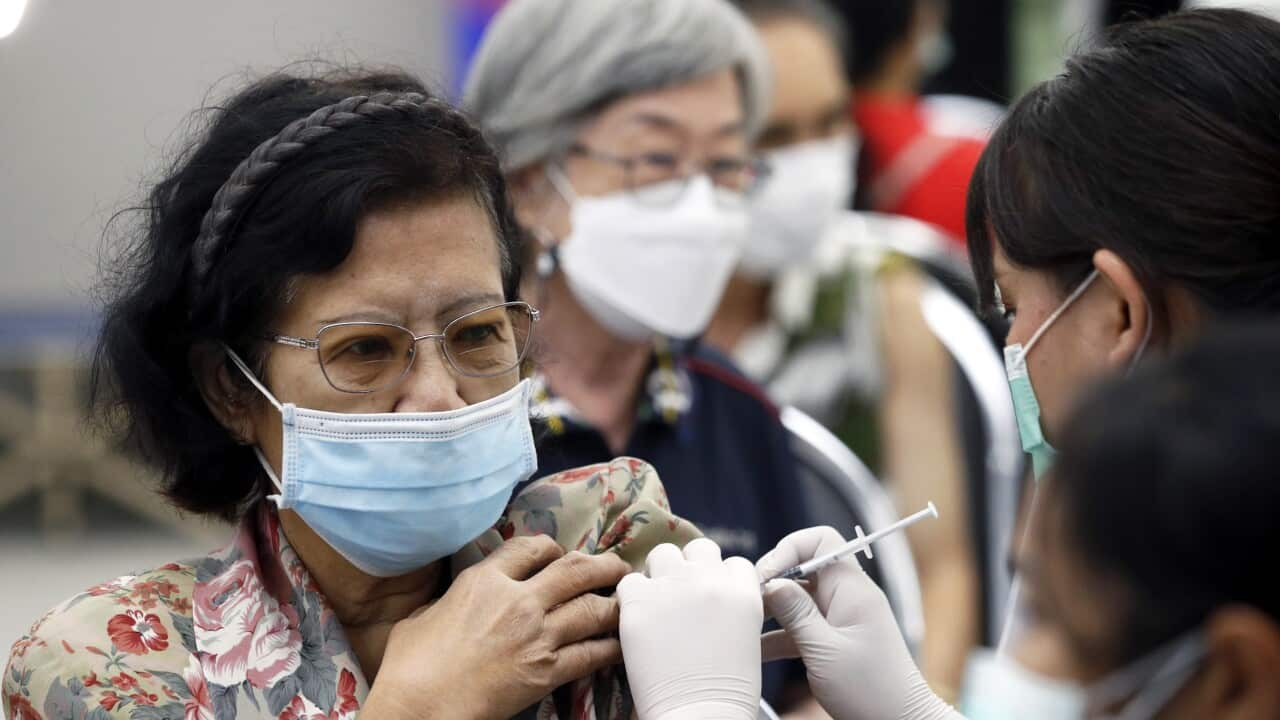New research involving more than 99 million people has linked very rare neurological, blood and heart-related medical conditions to COVID-19 vaccines.
But experts say the benefits still outweigh the risks.
More than 13.5 billion have been administered worldwide since 2020 and 71 per cent of the global population has received at least one dose.
The study aimed to inform future vaccine programs and rollouts.
Here's what the researchers found and what you need to know.
What is the new COVID-19 vaccine study?
The study was the largest of its kind and included participants from Australia, Argentina, Canada, Denmark, Finland, France, New Zealand and Scotland who received a COVID-19 vaccine.
Researchers involved with the Melbourne-based Murdoch Children's Research Institute and Global Vaccine Network identified new 'vaccine safety signals', which highlight a potential link between a vaccine and a health condition.
A second study used a dataset involving 6.8 million Australians to examine the risk between the AstraZeneca COVID-19 vaccination and neurological conditions.
Are COVID-19 vaccines linked to medical conditions?
Researchers identified potential connections with the following medical conditions:
- Myocarditis (inflammation of the heart muscle)
- Pericarditis (swelling of the thin sac covering the heart)
- Guillain-Barré syndrome (an attack of the immune system on the nerves)
- Cerebral venous sinus thrombosis (a type of blood clot in the brain)
- Acute disseminated encephalomyelitis (inflammation and swelling in the brain and spinal cord)
The Australian study confirmed an increased risk between receiving an AstraZeneca vaccine and acute disseminated encephalomyelitis (ADEM), as well as transverse myelitis (spinal cord inflammation).
Hannah Morgan, a senior epidemiologist involved with the Australian study, said the prevalence of ADEM after a COVID-19 vaccine was 0.78 cases per million vaccines.
She said while adverse reactions are extremely rare, it is important to understand any potential side effects.
“It's really important for us to understand the potential side effects of these vaccines and balance them with their known lifesaving benefits to better inform future vaccination programs,” she said.
“And it's important for us to know we are able to identify these rare adverse events and to confirm them or rule them out accurately.”

Adverse reactions to COVID-19 vaccines are "extremely uncommon", researchers say. Source: AAP
She told SBS News that, while there is a small chance of these illnesses being triggered by a COVID-19 vaccine, they can also be set off by the virus itself.
"Many of these conditions are triggered by a viral illness, like COVID or influenza. And again, if you get a viral illness, most of us will recover and we'll be okay.
"But occasionally a virus can trigger these things," Leask elaborated.
"Some of these conditions can be debilitating, at least for a while. It's important to acknowledge that."
Associate professor Vinod Balasubramaniam, a molecular virologist at Monash University's Jeffrey Cheah School of Medicine and Health Sciences in Malaysia, said he believes the risks of side effects are higher after getting COVID-19 rather than after being vaccinated.
"Data underscores that the likelihood of experiencing a neurological event following a COVID-19 infection is markedly higher, up to 617 times, compared to post-vaccination occurrences," he said.
"Similarly, the risk of myocarditis is greater after a COVID-19 infection than following vaccination, with statistics indicating a risk of 35.9 cases per 100,000 individuals after the second vaccine dose, compared to 64.9 per 100,000 after contracting COVID-19."
How can you stay safe from COVID-19 in 2024?
Leask said while it is important to understand the potential side effects of vaccines, the benefits continue to outweigh the risks, particularly for vulnerable people in Australia and COVID-19.
“It's important to put that into perspective and to weigh up risks against benefits of vaccinating,” she said.
“And we still find, based on this careful science, that the benefits outweigh the risks for those groups who are recommended the vaccine because the risk of severe disease is so much higher for them.”
The Australian Technical Advisory Group on Immunisation (ATAGI) recommends that all adults aged over 75 years should receive an additional 2023 COVID-19 vaccine dose if six months have passed since their last dose.
The ATAGI also says adults aged under 75 with comorbidities who have no history (and therefore no hybrid immunity) or reside in a residential aged care facility should consider an additional booster.











